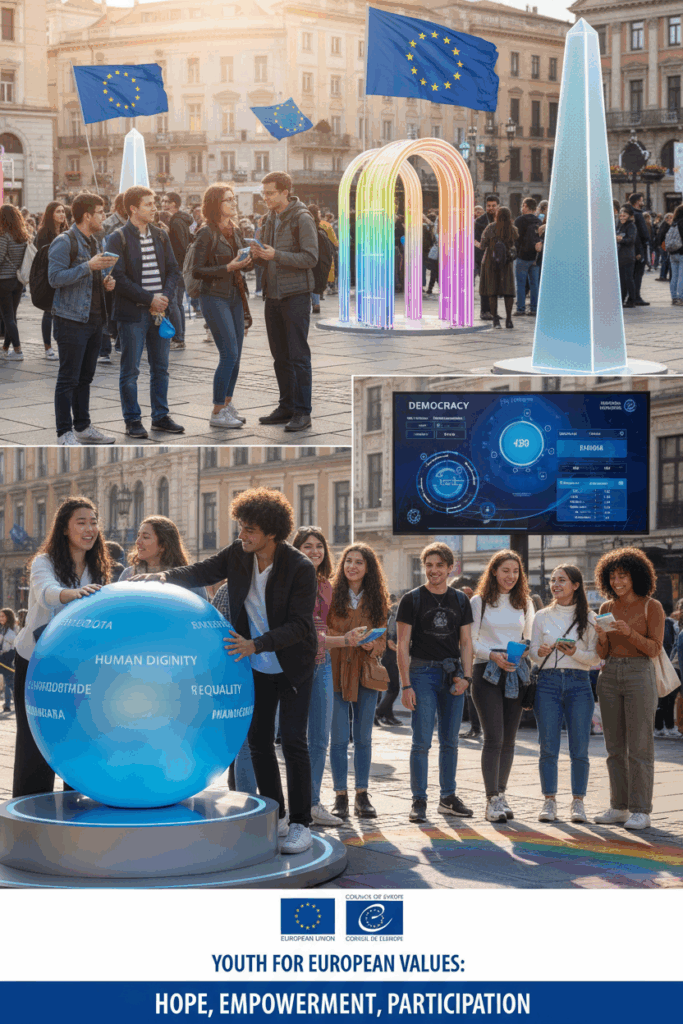
In an increasingly interconnected yet often turbulent world, the values upheld by the European Union are more relevant than ever, especially for young Europeans. As the inheritors of a continent shaped by centuries of history, young people today face unique challenges and opportunities. Understanding why EU values, such as human dignity, freedom, democracy, equality, and the rule of law, are not just abstract principles but tangible forces that impact their daily lives is crucial. This article explores the contemporary significance of these values for young Europeans in 2025, highlighting their practical implications and the role young people play in their preservation and evolution.
The EU as a Guardian of Rights and Freedoms
For young Europeans, the EU represents a unique space of rights and freedoms that are often taken for granted. The freedom to study, work, and travel across 27 Member States is a direct manifestation of the EU’s commitment to freedom of movement. This allows young people to broaden their horizons, gain diverse experiences, and access educational and professional opportunities that might otherwise be unavailable. Beyond mobility, the EU’s robust legal framework protects fundamental rights, including freedom of expression, privacy, and non-discrimination. In an era of digital transformation and global challenges, these protections are vital for safeguarding individual liberties and fostering an open, inclusive society.
Democracy is not a static concept; it requires active participation and engagement from all citizens, particularly the youth. The EU provides numerous avenues for young Europeans to make their voices heard and influence policy-making. From participating in European Parliament elections to engaging with youth organizations and civil society initiatives, young people have the power to shape the future of the Union. In 2025, with growing awareness of global issues like climate change, social justice, and digital ethics, youth engagement in democratic processes is more critical than ever. The EU’s commitment to democratic values ensures that young people’s perspectives are considered in decisions that will profoundly affect their generation.
Europe is a continent of rich diversity, and the EU’s commitment to equality is fundamental to ensuring that this diversity is a source of strength, not division. Young Europeans today are growing up in multicultural societies, and the EU’s efforts to combat discrimination based on gender, origin, religion, disability, or sexual orientation directly impact their experiences. Policies promoting equal opportunities in education, employment, and social life create a more level playing field for all. For young people, this means a fairer chance to succeed, regardless of their background, and the opportunity to live in societies where everyone is valued and respected. The EU’s ongoing work in promoting inclusion helps build cohesive communities where young people can thrive.
The Rule of Law: A Foundation for Stability and Justice
In a world grappling with geopolitical uncertainties and the spread of misinformation, the rule of law provides a crucial anchor of stability and justice. For young Europeans, understanding and upholding the rule of law means recognizing that everyone, including governments, is subject to the same laws. This principle ensures fairness, predictability, and accountability in governance. It protects citizens from arbitrary power and provides a framework for resolving disputes peacefully. The EU’s commitment to the rule of law underpins its internal market, protects consumer rights, and ensures a stable environment for innovation and economic growth, all of which directly benefit young people as they enter the workforce and navigate their adult lives.
